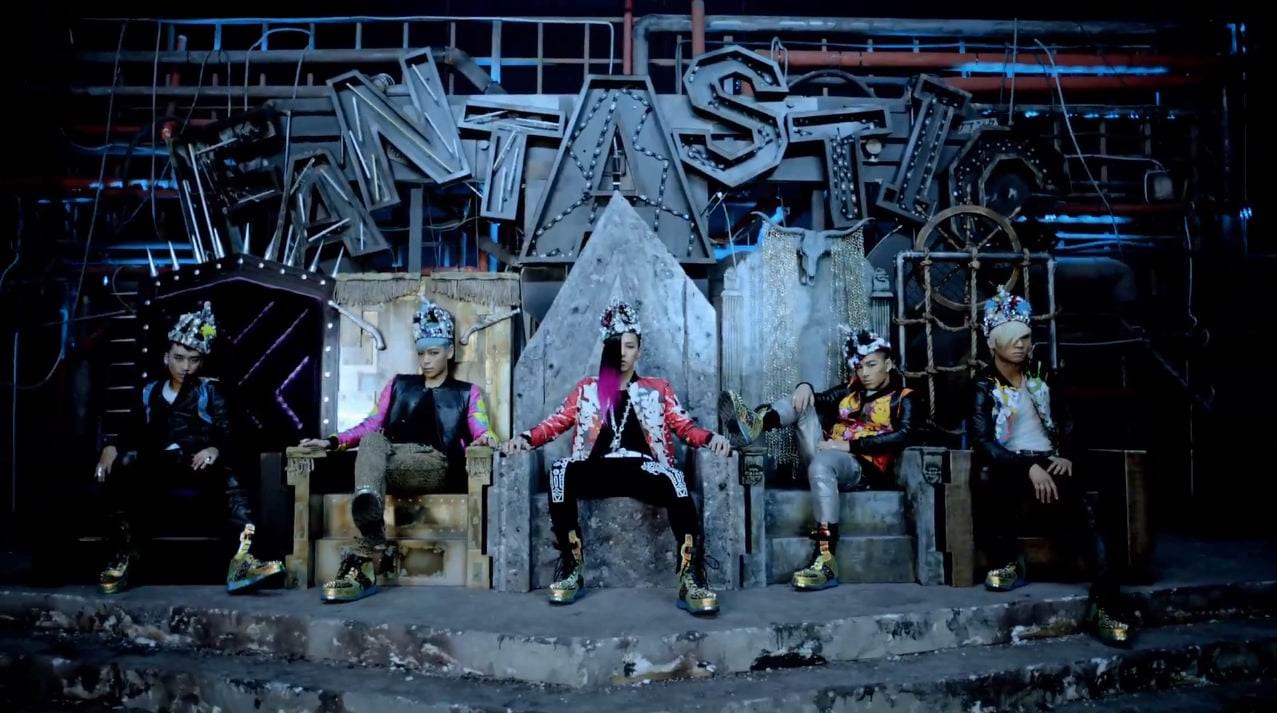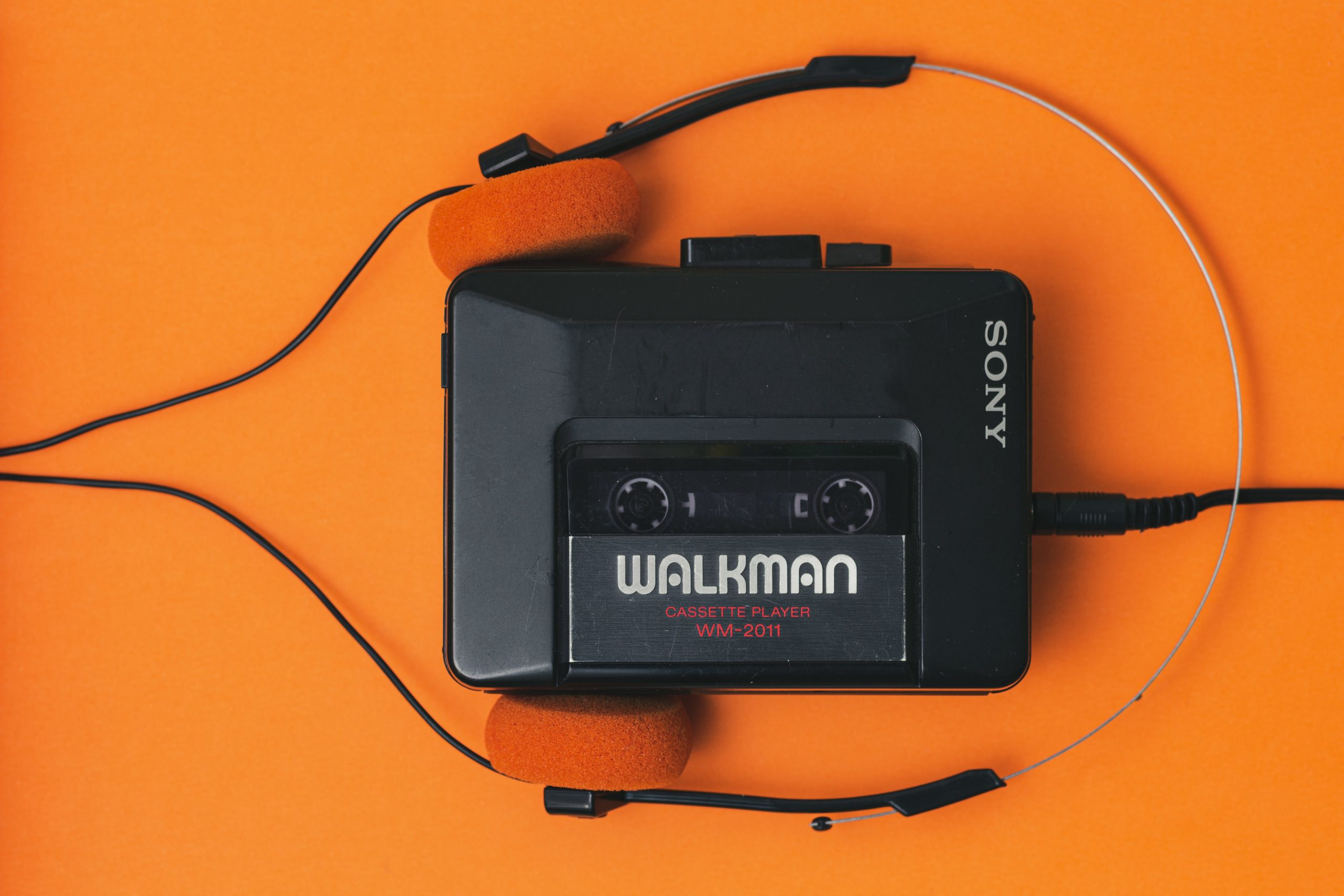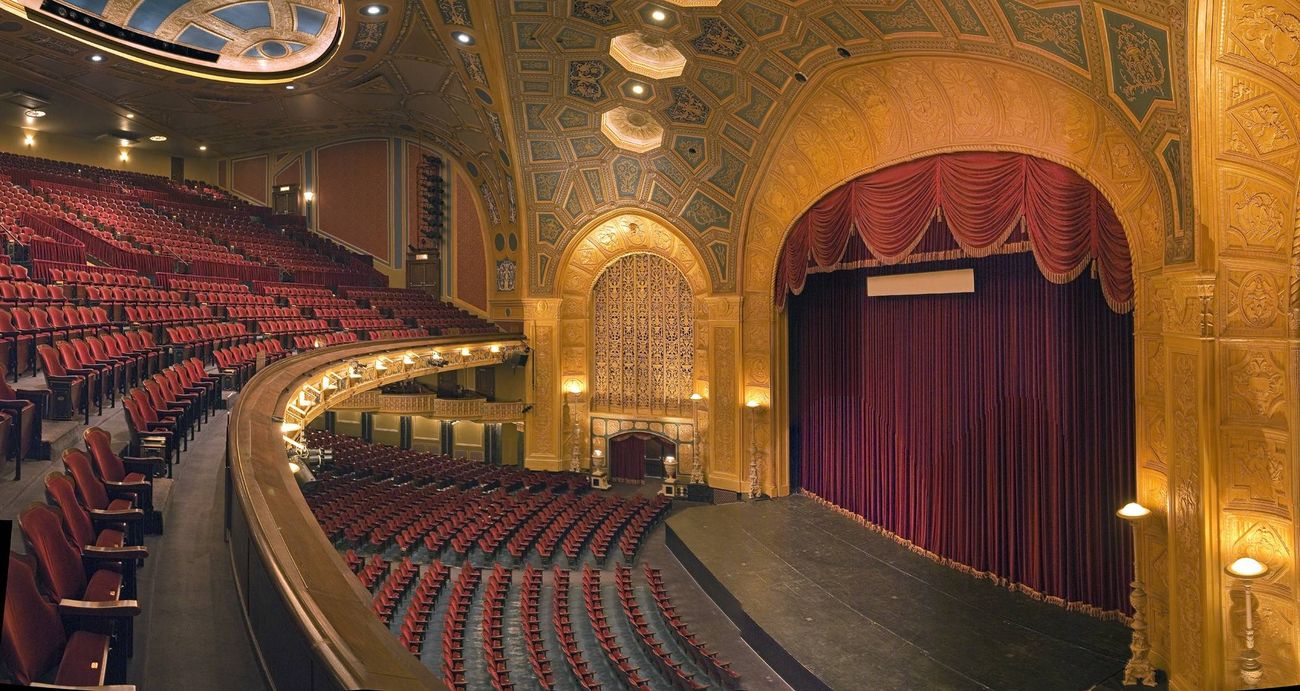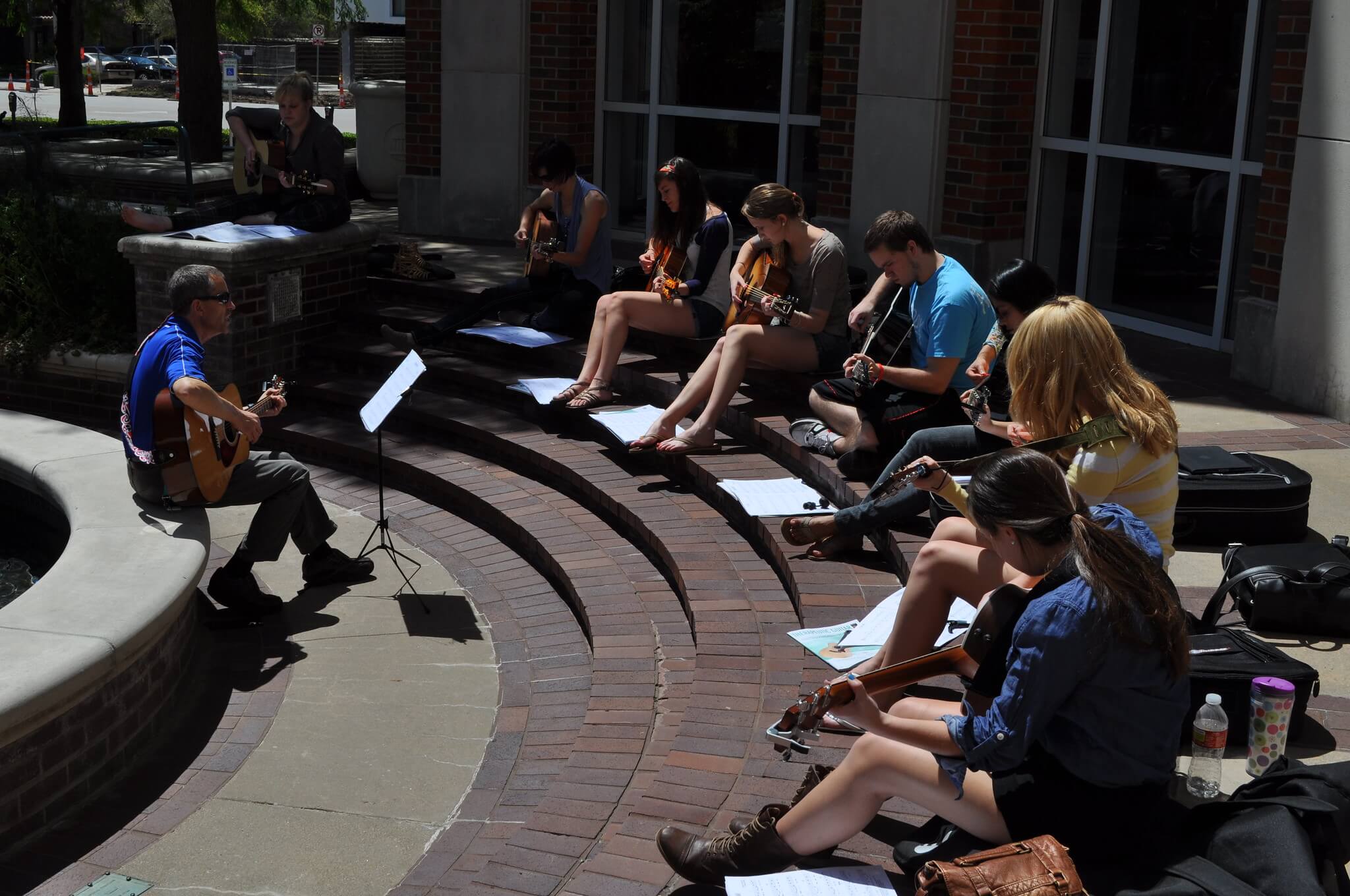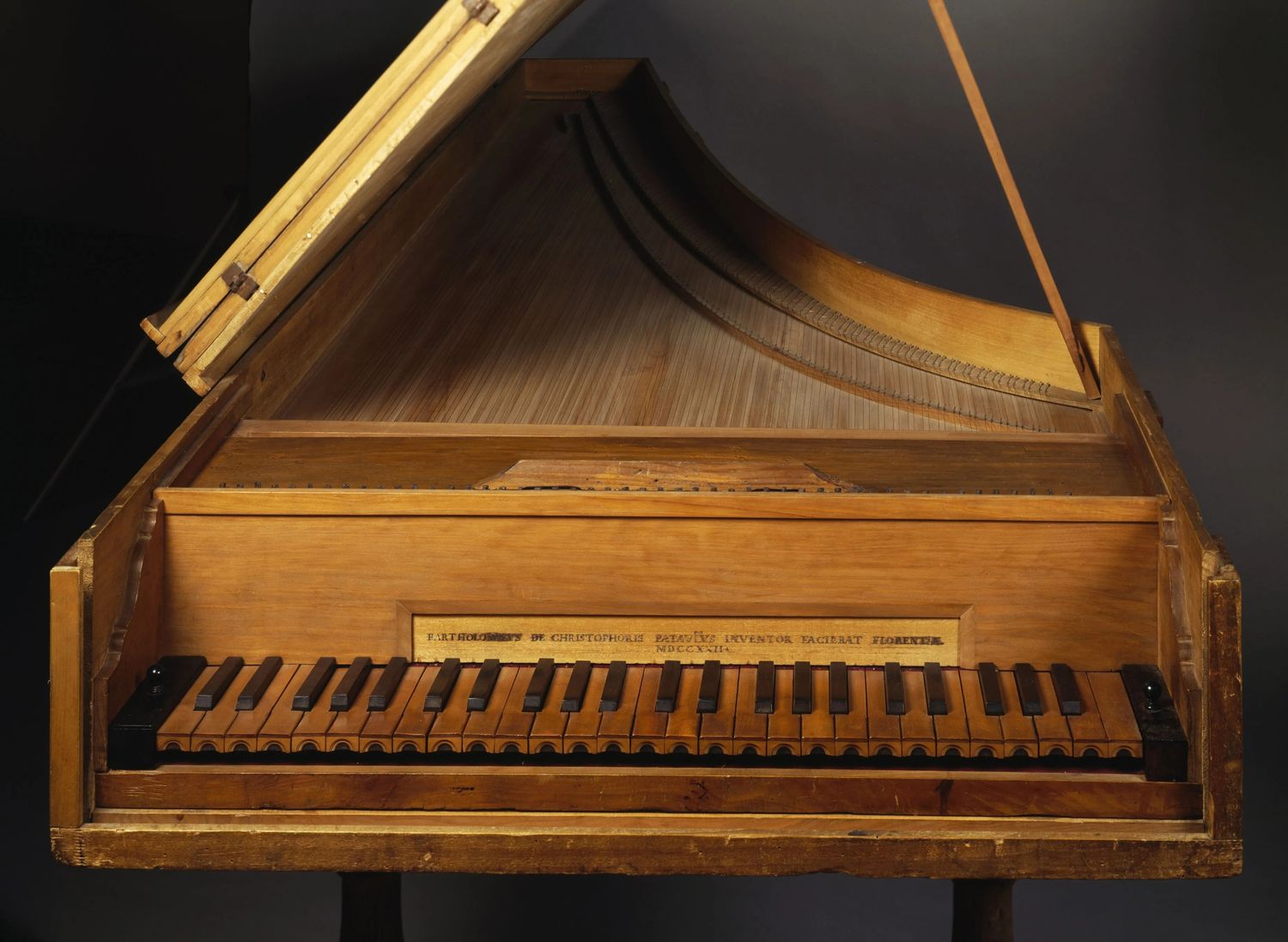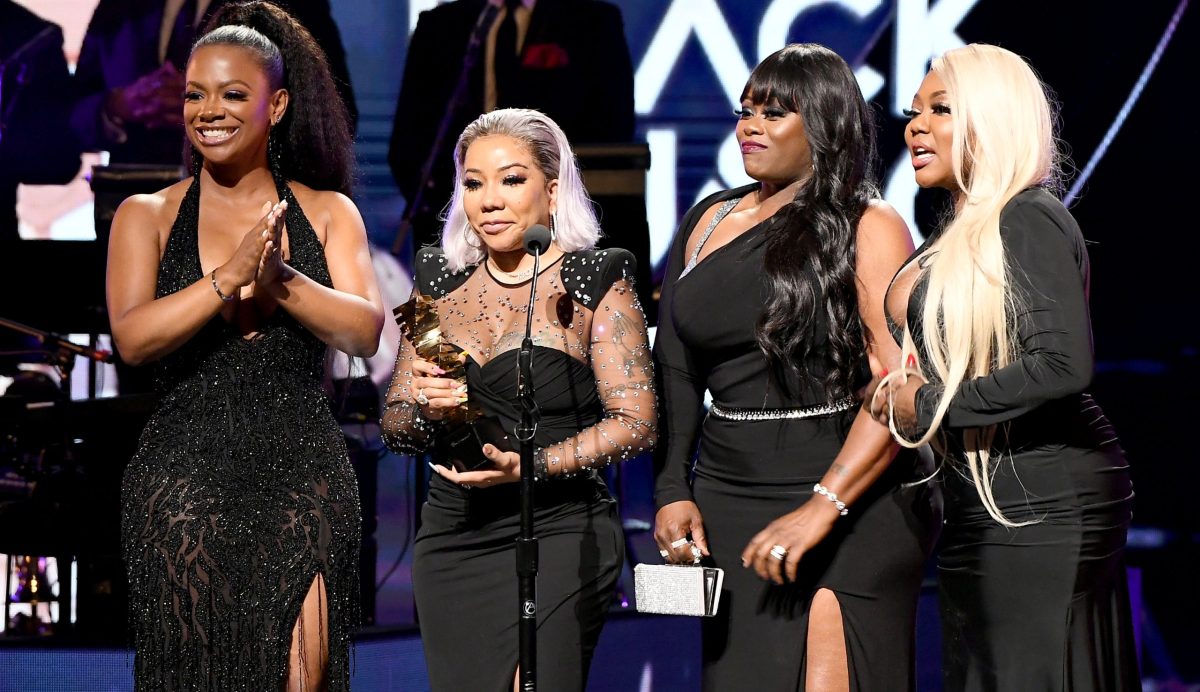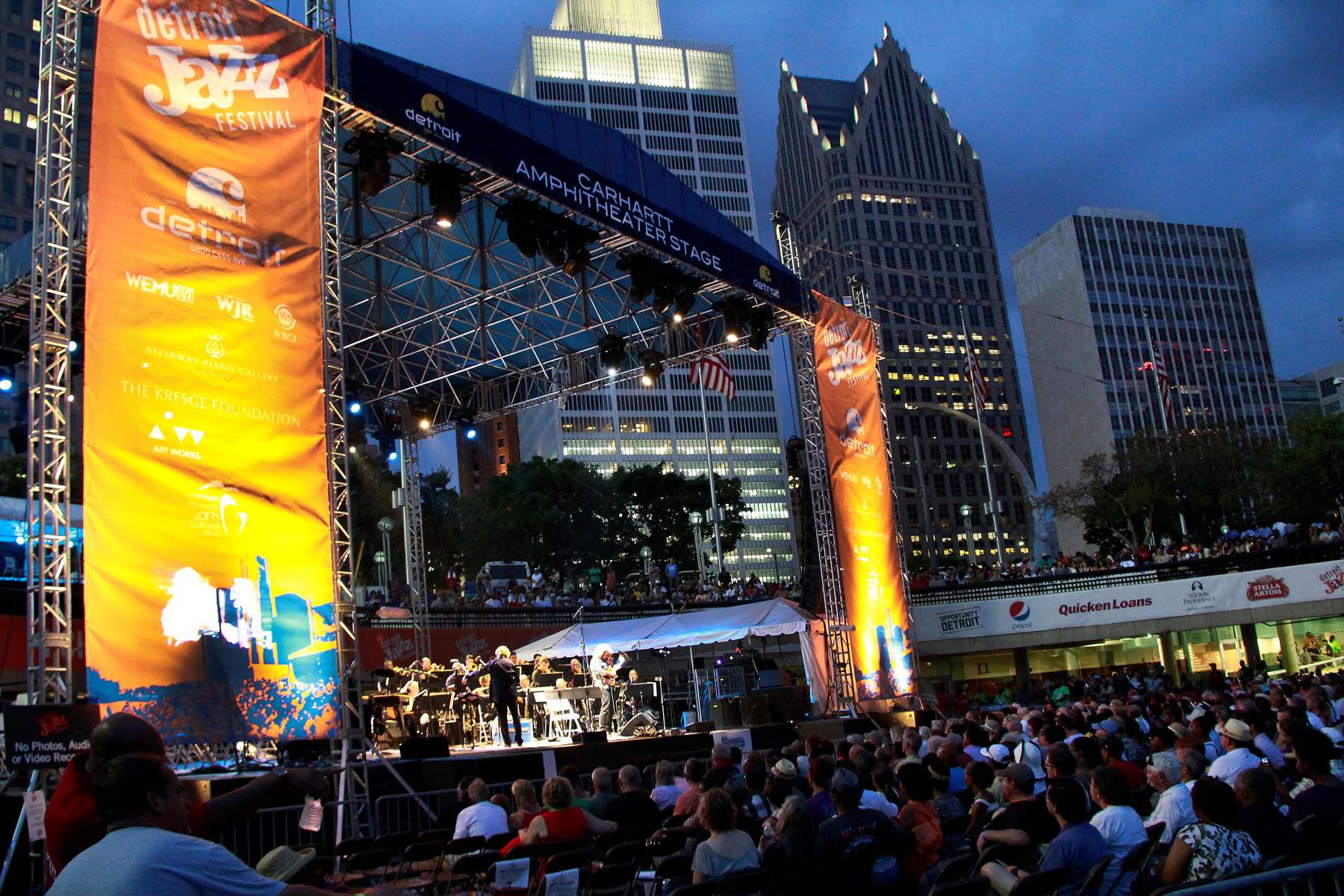Home>Events & Info>Music Awards>What Was The First Year Of The Detroit Music Awards
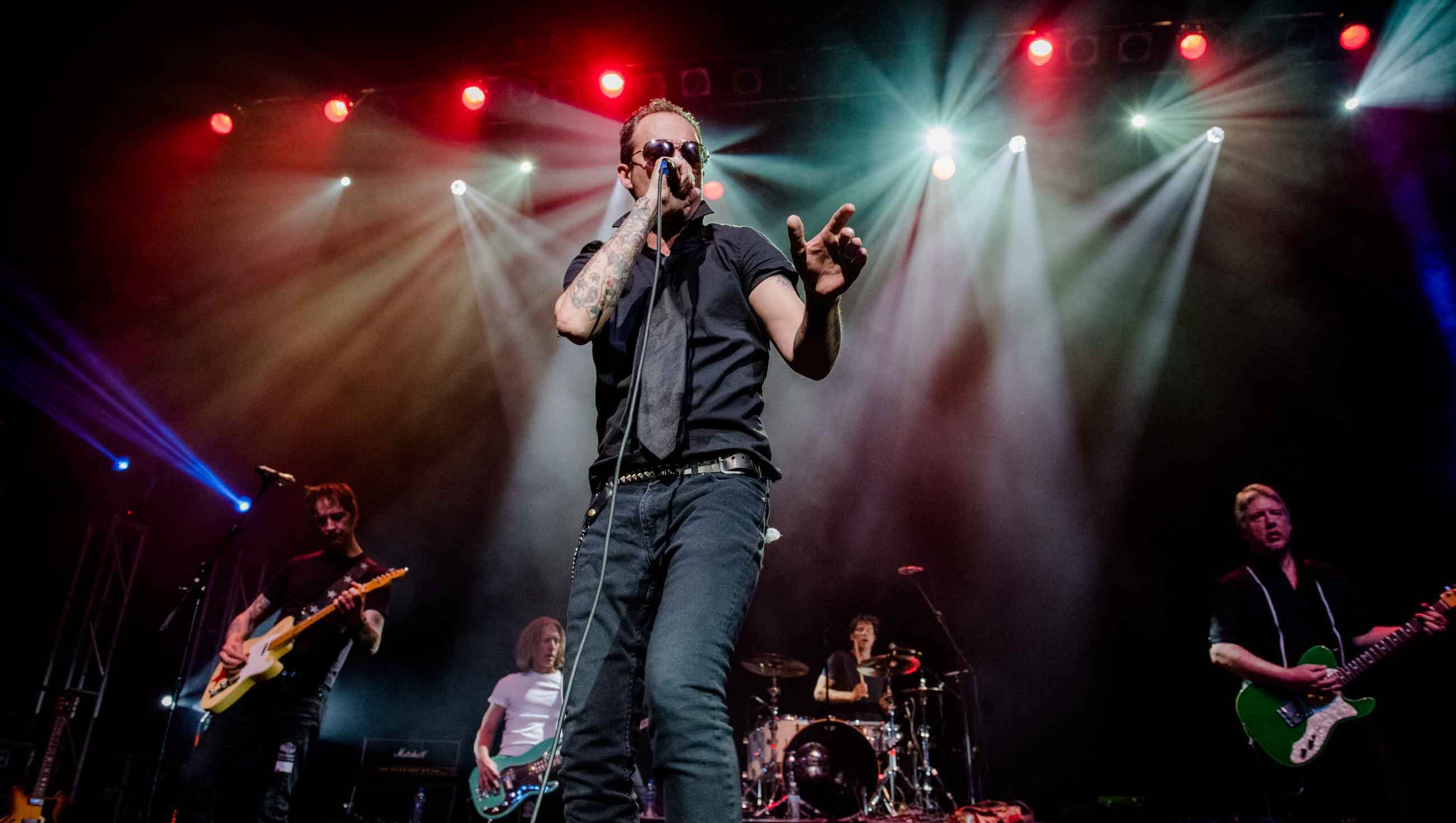

Music Awards
What Was The First Year Of The Detroit Music Awards
Published: January 1, 2024
Discover the inception year of the prestigious Detroit Music Awards, celebrating the best of music talent across genres. Join us as we delve into the history of this acclaimed Music Awards ceremony.
(Many of the links in this article redirect to a specific reviewed product. Your purchase of these products through affiliate links helps to generate commission for AudioLover.com, at no extra cost. Learn more)
Table of Contents
Introduction
The Detroit Music Awards (DMA) is an annual event that celebrates and recognizes the richness and diversity of the music scene in Detroit, Michigan. Since its inception, the DMA has become a highly esteemed music awards ceremony, honoring talented musicians across various genres.
Every year, the DMA provides a platform for artists to showcase their talent and accomplishments, highlighting the vibrant music community that Detroit has to offer. The awards not only recognize the achievements of established musicians but also serve as a springboard for emerging artists, giving them the opportunity to gain exposure and connect with industry professionals.
With its rich musical heritage, Detroit has been home to iconic artists and has given birth to numerous genres, such as Motown, techno, and punk rock. The DMA reflects the city’s legacy and showcases the incredible talent that continues to emerge from its streets.
From songwriters and performers to producers and engineers, the DMA celebrates the entire spectrum of music creation. It acknowledges the hard work, dedication, and creativity that goes into crafting memorable songs and albums. Through its recognition of exceptional musicians, the DMA plays a crucial role in promoting the growth and sustainability of the Detroit music scene.
In this article, we will dive into the history of the DMA and explore its inaugural year, shedding light on the categories, nominees, and winners that set the stage for this prestigious event.
The Inception of the Detroit Music Awards
The idea for the Detroit Music Awards was born out of a collective desire to showcase the immense talent and diversity of the city’s music scene. In the early 1990s, a group of local music industry professionals, artists, and enthusiasts came together to create an event that would honor and elevate Detroit musicians.
The first discussions about the awards ceremony started in 1992, with a vision to create an inclusive platform that would encompass various genres and recognize artists at all stages of their careers. The organizers wanted to showcase the breadth and depth of the Detroit music community, paying homage to its past while nurturing its future.
After months of planning and collaboration, the Detroit Music Awards officially launched in 1992. The event was designed to be a culmination of the city’s musical achievements and an opportunity to bring artists and music enthusiasts together in celebration.
From the beginning, the DMA aimed to provide a voice to all musicians in Detroit – from the well-established acts to the up-and-coming artists who were pushing boundaries and creating innovative sounds. With this inclusive approach, the awards quickly gained popularity and became an eagerly anticipated event within the local music scene.
The Detroit Music Awards was not just about recognizing musicians; it was also about fostering a sense of community and camaraderie among artists and industry professionals. The organizers believed that by providing a supportive and collaborative environment, the Detroit music scene as a whole would thrive.
With its inaugural year just around the corner, the Detroit Music Awards embarked on a journey to honor the extraordinary talent that had shaped and defined the city’s musical landscape. The organizers were determined to make it a memorable event and set the stage for future celebrations of Detroit’s vibrant and influential musical heritage.
The First Ever Detroit Music Awards Ceremony
The much-anticipated first Detroit Music Awards (DMA) ceremony took place on April 24, 1992, at the Music Hall Center for the Performing Arts in downtown Detroit. The event was a culmination of months of planning and excitement within the local music community.
As the doors to the Music Hall opened, a palpable sense of anticipation filled the air. Musicians, industry professionals, and music enthusiasts came together to witness this historic event and celebrate the talent and passion that Detroit had to offer.
The evening showcased the diversity of the Detroit music scene, with performances spanning multiple genres. From rock and hip-hop to jazz and blues, the stage came alive with the sounds that had shaped the city’s musical landscape.
The first DMA ceremony aimed to honor artists across various categories, recognizing their exceptional contributions to the music industry. Categories included Best Single, Best Album, Outstanding National Major Label Recording, and Outstanding National Minor Label Recording, among others.
One of the highlights of the evening was the presentation of the Outstanding Community Service Award, which recognized individuals who had made a significant impact on the local music scene beyond their artistic endeavors. This award highlighted the importance of community and giving back as integral parts of the Detroit music culture.
Throughout the ceremony, the emphasis was not only on honoring the nominated musicians but also on fostering a sense of unity and collaboration. The DMA celebrated the collective achievements of the Detroit music community, emphasizing that its success was built on the support and cooperation of all involved.
As the night drew to a close, the first Detroit Music Awards ceremony left a lasting impression. It set the stage for future celebrations of Detroit’s musical prowess and showcased the immense talent that the city had to offer.
The inaugural DMA ceremony laid the foundation for an annual event that would continue to bring recognition and appreciation to Detroit’s vibrant music scene. It demonstrated the power of music to unite communities, inspire creativity, and foster a sense of pride in the city’s rich musical heritage.
With the success of the first DMA ceremony, the stage was set for future iterations of the awards, solidifying its place as a prestigious event within the Detroit music community and beyond.
Categories and Nominees of the First Detroit Music Awards
The first ever Detroit Music Awards (DMA) introduced a range of categories to honor the outstanding achievements of musicians from various genres. These categories aimed to capture the diverse talent that resided within the city and showcased the wide spectrum of musical excellence in Detroit.
Among the categories featured in the inaugural DMA were Best Single, Best Album, Outstanding Major Label Recording, Outstanding Minor Label Recording, and Outstanding Independent Recording. These categories recognized excellence in songwriting, performance, and overall artistic vision.
In the Best Single category, the nominees were excited to have their individual tracks acknowledged. Artists such as Detroit-based rock band Sponge with their hit song “Molly” and R&B artist Ortheia Barnes with her soulful track “Till You Were Gone” were among those recognized for their outstanding singles.
The Best Album category highlighted the exceptional creativity and craftsmanship that went into producing a full-length album. Nominees included bands like The Romantics with their self-titled album, along with blues musician Thornetta Davis’s “Sunday Morning Music,” and many other impressive contenders.
The DMA also recognized national and independent recordings, demonstrating the inclusive nature of the awards. Outstanding Major Label Recording nominees included established artists from Detroit, such as rap group Insane Clown Posse for “Carnival of Carnage” and rock band Bob Seger & The Silver Bullet Band for their album “The Fire Inside.”
Outstanding Minor Label Recording aimed to acknowledge the efforts and achievements of artists signed to smaller, independent labels. Nominees in this category included the alternative rock band The Seatbelts for their album “Take It Off,” and punk rock group The Sillies for “Lay Down the Law.”
Furthermore, the Outstanding Independent Recording category showcased the talent and determination of artists who self-produced their music. Independent nominees encompassed a range of genres and included artists like jazz saxophonist Faruq Z. Bey for “Emergence” and The Dirtbombs for their garage rock album “Horndog Fest.”
These categories and nominees highlighted the breadth of talent and creativity within the Detroit music community. They exemplified the dedication and innovation that musicians brought to their craft, shaping the city’s vibrant music scene.
With such a prestigious range of categories and talented nominees, the first Detroit Music Awards promised an unforgettable celebration of Detroit’s music culture and set the stage for future ceremonies to continue honoring and acknowledging the brilliance and diversity of the city’s musical talent.
Notable Winners at the Inaugural Detroit Music Awards
The inaugural Detroit Music Awards (DMA) ceremony in 1992 brought recognition and accolades to many deserving musicians within the Detroit music scene. The winners of the first DMA set the tone for the prestigious event, showcasing the exceptional talent that had captivated the city and beyond.
In the category of Best Single, the winner was the rock band Sponge with their chart-topping hit, “Molly.” Known for their high-energy performances and catchy melodies, Sponge’s win solidified their status as one of Detroit’s most promising rock acts.
The award for Best Album went to blues musician Thornetta Davis for her soulful and powerful release, “Sunday Morning Music.” Davis’s exceptional vocals and heartfelt lyrics resonated with audiences, earning her critical acclaim and cementing her place as a revered figure in Detroit’s blues scene.
Rap duo Insane Clown Posse took home the award for Outstanding Major Label Recording with their debut album, “Carnival of Carnage.” Known for their unique and controversial style, the duo’s win signaled the growing influence of rap and hip-hop in Detroit’s music landscape.
In the category of Outstanding Minor Label Recording, punk rock group The Sillies emerged victorious with their album “Lay Down the Law.” The band’s raw energy and rebellious spirit captured the essence of Detroit’s punk scene, and their win solidified their place within the city’s vibrant underground music community.
The Outstanding Independent Recording award went to jazz saxophonist Faruq Z. Bey for his album “Emergence.” Bey’s mesmerizing compositions and skilled musicianship showcased the versatility and depth of Detroit’s jazz scene, earning him well-deserved recognition.
These notable winners at the inaugural DMA demonstrated the breadth of talent and creativity within Detroit’s music community. They represented different genres and styles, showcasing the diversity that has long been a hallmark of the city’s music scene.
Aside from individual awards, the DMA also recognized outstanding contributions to the community. The inaugural Outstanding Community Service Award went to Ron Coden, a musician who had not only made a significant impact with his art but also actively fostered a sense of community among musicians in Detroit.
By honoring these exceptional artists and individuals, the first Detroit Music Awards reinforced the significance of Detroit’s music culture and provided a platform for local talent to shine. The winners’ achievements served as an inspiration to aspiring musicians and demonstrated the immense possibilities within the city’s rich musical heritage.
The success and talent of these notable winners established a strong foundation for future iterations of the DMA, setting the stage for the continued celebration and recognition of Detroit’s extraordinary musicians.
Impact and Significance of the First Year of the Detroit Music Awards
The first year of the Detroit Music Awards (DMA) was a milestone event that left a lasting impact on the city’s music community. It served as a catalyst for the recognition and celebration of Detroit’s immense musical talent, solidifying the DMA as a significant and highly anticipated annual ceremony.
One of the key impacts of the first year of the DMA was the validation it provided to musicians across various genres. The awards highlighted the exceptional work being produced within the city and gave artists a sense of pride and recognition for their creative endeavors. This newfound validation helped to boost the confidence and morale of Detroit’s music community, inspiring artists to continue pushing boundaries and pursuing their passion.
Furthermore, the DMA created a network and sense of community among musicians, industry professionals, and music enthusiasts. The event brought together people from all walks of the music industry, fostering connections and collaborations that would continue to shape and elevate the Detroit music scene. The sense of camaraderie and support that emerged from the first DMA laid the foundation for future collaborations, mentorships, and the sharing of resources within the music community.
Moreover, the DMA provided a platform for emerging artists to gain exposure and connect with industry professionals. The recognition received at the awards ceremony opened doors for these musicians, helping them to secure record deals, live performances, and other opportunities to further their careers. This exposure helped to catapult many talented artists onto the national and international stage, bringing attention not only to their individual success but also to the thriving music scene in Detroit as a whole.
The significance of the first year of the DMA was not limited to the music community; it also extended to the city as a whole. The awards drew attention to Detroit as a cultural hub and showcased the city’s rich musical heritage. This newfound reputation helped to attract visitors, tourists, and music enthusiasts from around the world, boosting the local economy and supporting the growth of Detroit’s arts and entertainment industries.
Additionally, the DMA served as a catalyst for artistic innovation and growth within the Detroit music scene. The recognition given to musicians inspired new generations of artists to pursue their dreams and explore their unique musical talents. The awards created a sense of healthy competition, pushing artists to continually raise the bar and contribute to the ever-evolving musical landscape of the city.
Overall, the first year of the Detroit Music Awards had a profound and enduring impact on the city’s music community. It provided validation, recognition, and a sense of community for musicians, while also promoting the city’s cultural heritage and attracting attention from a broader audience. The DMA continues to play a vital role in nurturing and showcasing the incredible talent within Detroit’s music scene, solidifying the city’s reputation as a powerhouse in the world of music.
Conclusion
The first year of the Detroit Music Awards (DMA) marked the beginning of a prestigious event that has since become an integral part of the city’s music culture. The inaugural DMA ceremony in 1992 set the stage for years of recognition, celebration, and support for the exceptional talent within Detroit’s music community.
From its inception, the DMA aimed to showcase the richness and diversity of Detroit’s music scene. The event not only honored established musicians but also provided a platform for emerging artists to gain exposure and connect with industry professionals. This inclusive approach fostered a sense of community and camaraderie among musicians and industry insiders, promoting collaboration and growth within the music community.
The categories and nominees of the first DMA represented the wide spectrum of musical excellence in Detroit. From rock to jazz, from major label recordings to independent releases, the awards recognized the contributions and achievements of artists from various genres. This diversity highlighted the city’s musical heritage and demonstrated the immense talent and creativity that was flourishing within its borders.
The significance of the first year of the DMA was not limited to the music community alone. The event also brought attention to Detroit as a cultural hub, attracting visitors, tourists, and music enthusiasts from around the world. The awards ceremony helped boost the local economy and contributed to the growth of Detroit’s arts and entertainment industries.
Furthermore, the impact of the first DMA extended beyond a single event. It validated and inspired musicians, providing them with a platform for their work and helping to drive artistic innovation within the city. The awards fostered healthy competition, pushing artists to continually push boundaries and contribute to the city’s thriving music scene.
In conclusion, the first year of the Detroit Music Awards marked a significant milestone in the city’s music culture. It provided validation and recognition to the talented musicians within the community, fostering a sense of pride and unity. The event showcased the diversity and creativity of Detroit’s music scene, attracting attention and acclaim from both local and international audiences. The DMA continues to play a vital role in honoring and elevating the extraordinary talent within Detroit, solidifying the city’s position as a global music powerhouse.

